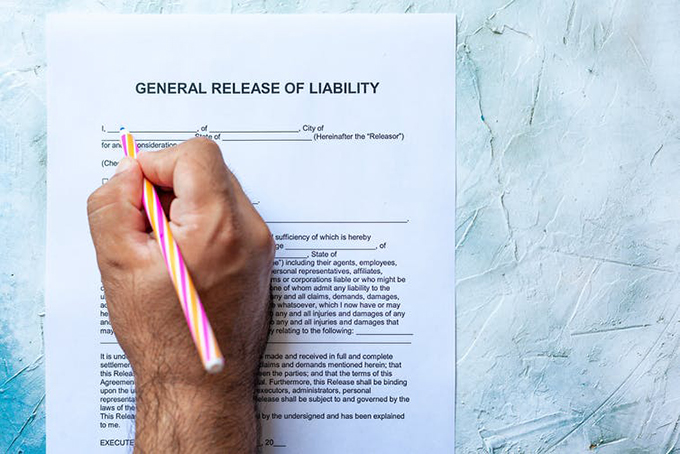
When U.S. President Donald Trump held a rally earlier this summer in Tulsa, Okla., expecting thousands of supporters to gather in close quarters, he had them all sign COVID-19 liability waivers. This meant they couldn’t hold him or his campaign responsible if they contracted COVID-19 at the event.
At the time, we were amused by the irony, but COVID-19 waivers are becoming commonplace. The city of Halifax has one for its summer camps, as do Saskatchewan 4-H clubs and some dental clinics and yoga studios.
Several American universities make students sign waivers before participating in sports.
There’s every reason to think that if or when students return to campuses in the fall, Canadian universities will seek to limit their legal risk. We urge them not to.
COVID-19 liability waiver
St. Francis Xavier University, in Antigonish, N.S. — known colloquially as StFXU — recently announced its students would have to sign COVID-19 liability waivers. StFXU is offering most of its courses in person this fall.
Under StFXU’s proposed waiver, students won’t be allowed to return to campus or participate in any activities — including online activities — unless they first sign it.
By doing so, students would have no legal recourse against StFXU if they contracted COVID-19 due to the university’s negligence or wrongdoing.

Students will be barred from taking part in any campus activities unless they sign the waiver. (Shutterstock)
In response to concerns raised by the university community, StFXU reconsidered the specific wording of its waiver, but ultimately decided to proceed.
Even without a waiver, StFXU wouldn’t be financially responsible for all COVID-19 infections — it’s only liable for those infections caused by its unreasonable acts or omissions. But the waiver meant that even if StFXU acted unreasonably, students couldn’t recover compensation.
COVID-19 waivers are wrongheaded
StFXU and other universities would be wrong to impose this risk on their students. Moreover, such waivers might not even be enforceable.
Liability waivers are contracts — agreements between parties committing to some kind of exchange. They allocate risks and rewards. If you want a company to provide you with scuba lessons for $500, for example, it will insist you sign a waiver so that you bear the risk of injury.
In theory, you could pay the company (or a competitor) $600 for those lessons and the scuba company could insure against losses. The ability to allocate risk and voluntarily agree on terms is fundamental to contract law, and Canadian courts have generally enforced liability waivers.
University COVID-19 waivers, however, are different. Students don’t have the ability to negotiate the terms of a waiver or to pursue their post-secondary education elsewhere. These waivers are take-it-or-leave-it: if you want to be a university student this fall, you’ll have to sign away your legal rights. If you don’t, you can’t have access to your education.
Public policy concerns
There are several reasons why universities would be wrong if they sought to impose the financial risk of COVID-19 on their students as insurance companies stop covering losses due to the pandemic.
First, post-secondary education is a public good. Like all education, it benefits not only individual students but society as a whole. If liability rests with universities, compensation will come partly from governments, which still provide a significant portion of university budgets.
Second, universities that unilaterally choose to offer in-person education this fall shouldn’t be allowed to shift the financial risks of their choice onto their students.
Third, liability waivers remove an important incentive to ensure campus is safe. Though universities will undoubtedly continue to take all appropriate measures to protect their students, the risk of legal liability helps encourage institutions to prioritize safety measures.
Legal concerns
There’s no “freedom of contract” here. Instead, there’s a significant inequality of bargaining power. University students will be forced to either accept the waiver or forego their education — at least for now. This isn’t a bargain students enter into willingly, as concerns over the StFXU waiver show.

Xavier Hall at St. Francis Xavier University in Antigonish, is seen from Nicholson Tower. The university is going to issue COVID-19 waivers this fall to students. (Brendan Riley/Creative Commons)
Indeed, waivers like the one initially imposed by StFXU may not be legally enforceable. The Supreme Court of Canada’s recent decision in the Uber Technologies Inc. vs. Heller case emphasized that contracts won’t be enforced when they’re unfair.
For example, if your doctor said she would only take you on as a patient if you waived your right to sue her for negligence, such a waiver wouldn’t be enforced, any more than a promise made with a gun to your head would be.
The law in Canada on unfair or “unconscionable” contracts depends on the specific facts of each case. The initial StFXU waiver was an entirely one-sided, take-it-or-leave-it deal in the context of access to higher education and the risk of serious illness. There are reasonable grounds to believe it wouldn’t be upheld in court.
While it’s not inconceivable that a university could craft an enforceable COVID-19 waiver, the law is unlikely to tolerate a contract effectively compelling students to choose between their education and their health.
Universities must ensure student safety
We sympathize with institutions whose insurance companies will soon stop covering losses due to COVID-19. That puts them in a difficult position, and for many organizations, like summer camps and yoga studios, waivers may be appropriate.
But universities are different. They have a higher calling than merely protecting the bottom line. Universities have a duty to provide a safe learning environment for their students.
If they fail in this duty and students contract COVID-19 as a result, universities should be legally responsible.
Author Bios: Jason MacLean is Assistant Professor of Law and Hilary Young is Associate Professor, Law both at the University of New Brunswick
